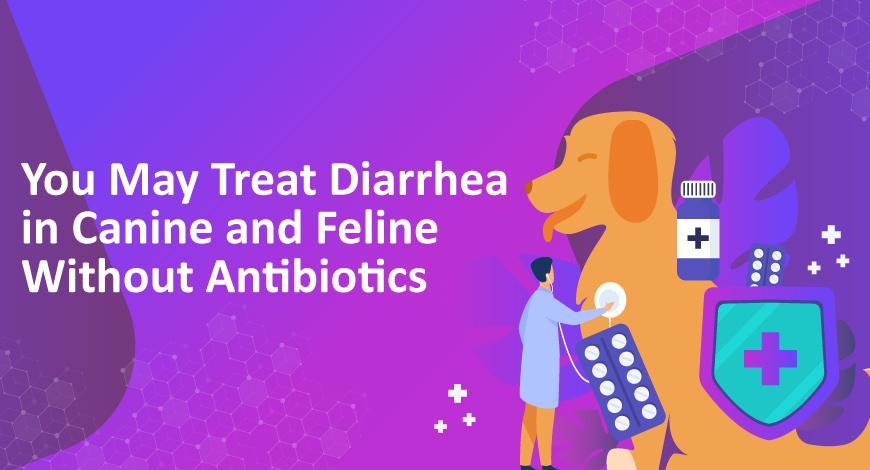You May Treat Diarrhea in Canine and Feline Without Antibiotics
New revelations regarding the trillions of microbes comprising the intestinal microbiome are raising questions over the treatment of diarrhea in canine and feline patients with antibiotics.
Dr. Jennifer Granick, an associate professor of small animal medicine at the University of Minnesota College of Veterinary Medicine, tabled a suggestion that the treatment of diarrhea in small animals must focus on the restoration of the complex system of bacteria and other microbes within the gastrointestinal tract.
While addressing a presentation at the AVMA Convention 2022 in Philadelphia, Dr. Granick suggested a new approach to treating diarrhea in the dog and cat.
“When I went to veterinary school, we were taught to use metronidazole for diarrhea, and what I hope to convince you of is that, maybe, we should be rethinking our approach,” added Dr. Granick.
Talking about the benefits of microbes, Dr. Granick explained that the gut microbiome is an essential part of host health. These microorganisms play a vital role in creating a defensive barrier against pathogens, aiding in nutrient breakdown and digestion, facilitating the release of energy from ingested food, providing nutritional metabolites for enterocytes, increasing immunity, and metabolizing tough-to-digest substances, such as drugs.
Dr. Granick further said that the gut microbiota of dogs and cats consists of the genus Firmacutes, Bacteroides species, and fusobacteria, . The canine GI tract contains large amounts of Enterococcus and lactic acid–producing species, whereas Lactobacillus, Enterococcus, and Bifidobacterium species are found within the feline GI tract.
Commenting on canine and feline gut health, Dr. Granick said that gut health is not a new concept in veterinary medicine, noting how withholding food was thought beneficial in the past.
“We don’t do that anymore because there are plenty of studies that say early enteral feeding is more helpful for getting these animals well sooner. The key to that is feeding the gut because the gut needs the bacteria to eat in order to stay healthy,” Dr. Granick added.
Research shows that there is hardly any impact of antibiotics when treating acute diarrhea in small animals.
Adding this, Dr. Granick talked about the alternative of antibiotics. Prebiotics–that is, substances fed to the microbiome to get back on track. This includes high-fiber diets and cilium additives.
Continuing with the alternatives to antibiotics, Dr. Granick said that fecal microbiome transplantation is another considerable option, but it’s a relatively new procedure with much to be learned.
According to Dr. Granick. “Screening your donors is so important,” she warned, “not only for fecal pathogens but also making sure they don’t have a long history of antimicrobial use."
In the case of acute diarrhea, Dr. Granick suggested a highly digestible diet, probiotics, plus or minus prebiotics, and deworming, depending on the patient’s history.
“My decision making really depends on what has already been tried,” Dr. Granick said “Oftentimes, when I’m seeing patients with chronic diarrhea, they’ve gone through a few different treatment trials first. And I’ll make my decision about diet depending on what’s already happened.”
Dr. Granick said that the last option she would consider is to try antibiotics.
“That’s not to say there aren’t antibiotic-responsive diarrheas out there. There absolutely are,” she said. “But antibiotics are the last thing I do, which is really different than when I first started practicing because it was the first thing I did.”







